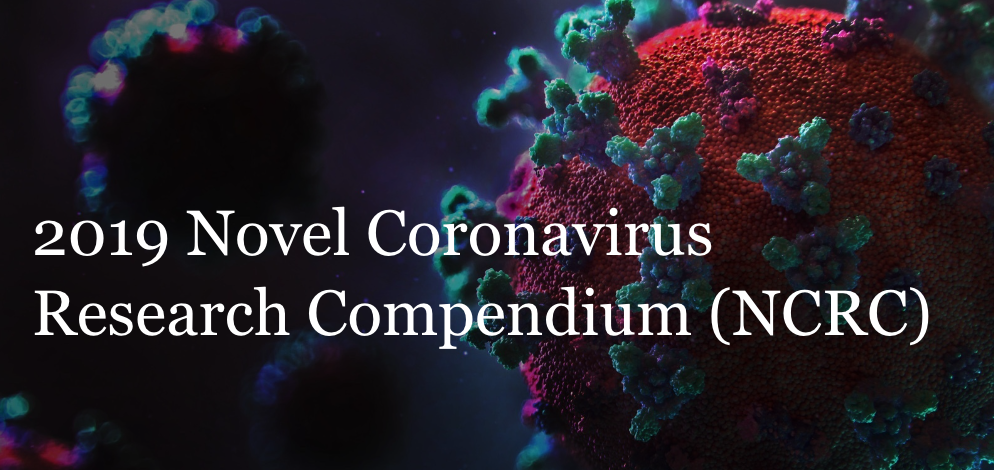Interim Results of a Phase 1–2a Trial of Ad26.COV2.S Covid-19 Vaccine
This article has been Reviewed by the following groups
Discuss this preprint
Start a discussion What are Sciety discussions?Listed in
- Evaluated articles (ScreenIT)
- Evaluated articles (NCRC)
Abstract
Article activity feed
-
-

SciScore for 10.1101/2020.09.23.20199604: (What is this?)
Please note, not all rigor criteria are appropriate for all manuscripts.
Table 1: Rigor
Institutional Review Board Statement IRB: The study was reviewed and approved by local ethics committees (Comité d’Ethique Hospitalo-Facultaire Sain-Luc, Université Catholique de Louvain on July 16, 2020) and institutional review boards (IRB) (approval by Advarra IRB on June 29 and July 10, 2020, for New Orleans Center for Clinical Research and Optimal Research sites, respectively).
Consent: All participants provided written informed consent before enrollment. RANDOMIZATION AND BLINDING: We randomly assigned 405 eligible participants 18–55 years of age and 405 participants ≥65 years of age to receive one or two vaccinations with either a 5×1010 or 1×1011 vp dose level of vaccine, or placebo …SciScore for 10.1101/2020.09.23.20199604: (What is this?)
Please note, not all rigor criteria are appropriate for all manuscripts.
Table 1: Rigor
Institutional Review Board Statement IRB: The study was reviewed and approved by local ethics committees (Comité d’Ethique Hospitalo-Facultaire Sain-Luc, Université Catholique de Louvain on July 16, 2020) and institutional review boards (IRB) (approval by Advarra IRB on June 29 and July 10, 2020, for New Orleans Center for Clinical Research and Optimal Research sites, respectively).
Consent: All participants provided written informed consent before enrollment. RANDOMIZATION AND BLINDING: We randomly assigned 405 eligible participants 18–55 years of age and 405 participants ≥65 years of age to receive one or two vaccinations with either a 5×1010 or 1×1011 vp dose level of vaccine, or placebo (1:1:1:1:1 per age group): 5×1010vp/5×1010vp; 5×1010vp/placebo; 1×1011vp /1×1011vp; 1×1011vp/placebo; or placebo/placebo for the first and second dose, respectively (Figure 1).Randomization STUDY DESIGN AND PARTICIPANTS: We are performing a multicenter, randomized, double-blind, placebo-controlled Phase 1/2a trial to evaluate safety, reactogenicity and immunogenicity of Ad26.COV2.S at 5×1010 or 1×1011 vp, administered intramuscularly (IM) as single-dose or two-dose schedules, 8 weeks apart, in healthy adults 18–55 years of age (cohort 1a (target n=375; interim safety and immunogenicity results post dose 1 reported here) and cohort 1b (target n=25; interim safety results post dose 1 reported here)) and ≥65 years of age (cohort 3 (target n=375; interim post dose 1 safety on full cohort reported here, as well as interim immunogenicity of first 15 participants that were 65–75 years of age)). Blinding Participants and investigators remain blinded at individual participant level throughout the study. Power Analysis not detected. Sex as a biological variable not detected. Table 2: Resources
No key resources detected.
Results from OddPub: We did not detect open data. We also did not detect open code. Researchers are encouraged to share open data when possible (see Nature blog).
Results from LimitationRecognizer: An explicit section about the limitations of the techniques employed in this study was not found. We encourage authors to address study limitations.Results from TrialIdentifier: We found the following clinical trial numbers in your paper:
Identifier Status Title NCT04436276 Active, not recruiting A Study of Ad26.COV2.S in Adults (COVID-19) NCT04505722 Active, not recruiting A Study of Ad26.COV2.S for the Prevention of SARS-CoV-2-Medi… Results from Barzooka: We did not find any issues relating to the usage of bar graphs.
Results from JetFighter: We did not find any issues relating to colormaps.
Results from rtransparent:- Thank you for including a conflict of interest statement. Authors are encouraged to include this statement when submitting to a journal.
- Thank you for including a funding statement. Authors are encouraged to include this statement when submitting to a journal.
- Thank you for including a protocol registration statement.
-

Our take
Adenoviral-vectored vaccine platforms are generally thought to be strongly immunogenic, with elicitation of particularly robust cellular responses. These preliminary data, presented as a preprint and thus not yet peer reviewed, indicate Ad26.COV2.S is likely no exception, and suggest that a single-dose regimen may be adequate. Additionally, preexisting immunity to the Ad26 vector used in this study is known to be considerably less than that observed with the previously utilized Ad5 vector (used in failed HIV vaccine trials).
Study design
randomized-controlled-trial
Study population and setting
This study presents the interim results of a Phase 1/2a randomized, double-blinded, placebo-control clinical trial assessing the safety and immunogenicity of a non-replicating recombinant adenovirus …
Our take
Adenoviral-vectored vaccine platforms are generally thought to be strongly immunogenic, with elicitation of particularly robust cellular responses. These preliminary data, presented as a preprint and thus not yet peer reviewed, indicate Ad26.COV2.S is likely no exception, and suggest that a single-dose regimen may be adequate. Additionally, preexisting immunity to the Ad26 vector used in this study is known to be considerably less than that observed with the previously utilized Ad5 vector (used in failed HIV vaccine trials).
Study design
randomized-controlled-trial
Study population and setting
This study presents the interim results of a Phase 1/2a randomized, double-blinded, placebo-control clinical trial assessing the safety and immunogenicity of a non-replicating recombinant adenovirus 26-vectored SARS-CoV-2 vaccine (Ad26.COV2.S) expressing full-length, stabilized SARS-CoV-2 S (spike) protein currently in development by Janssen Pharmaceutical/Johnson & Johnson. The study cohorts consisted of adults aged 18-55 and ≥ 65 in the United States and Belgium. Two doses of the vaccine were evaluated, each administered intramuscularly (IM) either as a single dose or as a two-dose regimen (administered on day 0 and day 56), with a control group receiving a saline-only injection. Safety was assessed by monitoring solicited adverse events (AEs) for 7 days, unsolicited AEs for 28 days, and serious adverse events (SAEs) throughout the study. Immunogenicity was assessed by measurement of both humoral and cellular responses.
Summary of main findings
AEs were generally limited to pain at the injection site, fatigue, headache, and myalgia. Fever was reported in 19% of participants, with a grade 3 fever present in 5%. One vaccine-related SAE was reported: a fever that required hospitalization due to suspicion of COVID-19. Seroconversion rates for total specific IgG were very high (99-100%) for all groups, and a 4-fold or greater increase in binding antibody titer was achieved for most of the participants that were found to be seropositive prior to vaccination. Seroconversion rates for neutralizing antibodies were also high (83-100%) for all groups. Stimulation of cellular immunity was also generally robust, with 67-100% of participants producing detectable CD4+ responses. Only 1 participant produced a detectable CD4+ Th2 response, and overall was still strongly CD4+ Th1-skewed; thus, concerns for vaccine-associated enhanced respiratory disease (VAERD) were judged to be minor. Detectable CD8+ responses were detected in 33-64% of participants.
Study strengths
This study had a strong design and included the important group aged ≥ 65 years. Both humoral and cellular immune responses are assessed, with attention given to CD4+ Th1/Th2 ratios as necessitated by concern for VAERD.
Limitations
The data presented are still very preliminary, with many participants/groups currently excluded from the report (e.g. only data from 15 participants from the ≥ 65 year-old group is included). Although seropositivity rates for Ad26 amongst the participants "will be reported later" according to authors, this is an important piece of data to assess the potential for vaccine failure in the context of previous exposure to Ad26. Additionally, the continued lack of standardization in the assays used makes comparison to other vaccines in development difficult.
Value added
These preliminary data indicate that the Janssen Pharmaceutical/Johnson & Johnson Ad26.COV2.S SARS-CoV-2 vaccine is generally safe and immunogenic, and remains a viable contender in the ongoing effort to develop an efficacious vaccine against COVID-19.
-


